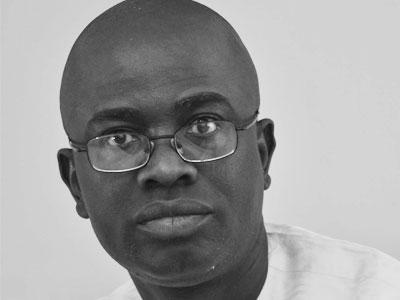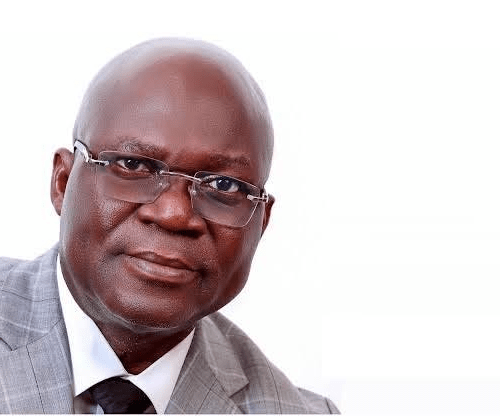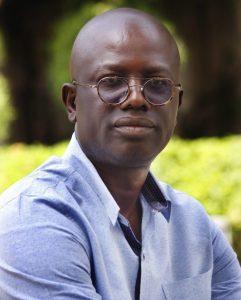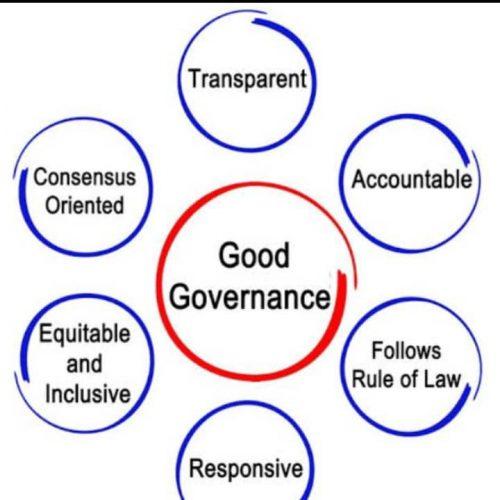Motorists across the country are facing yet another harrowing experience as a result of the Nigerian Midstream and Downstream Petroleum Regulatory Authority (NMDPRA) confirmation that adulterated fuel will be withdrawn from circulation. Aside from the inconvenience of having to queue for long hours at filling stations, there are reports of vehicles whose engines have been damaged. But this is a familiar problem that is associated with the mismanagement of the downstream sector of the petroleum industry that we have been told will continue for as long as President Muhammadu Buhari remains in power.
The current problem is related to a high methanol component, but we are also aware that subsidy merchants are adept at playing these games to cut corners at the expense of consumers. About a decade ago, Nigerians were served adulterated fuel oozing an awful odour. And in a series, ‘Highly Inflammable’ I did in 2004 (18 years ago) to highlight the danger of fuel subsidy, Mr Benson Uwatse, the Chief Executive of Mercedes Benz told me that the fuel needed for our vehicles should contain 92 Octane but what was being imported at the time contained 84 Octane because it was cheaper, even though fit only for farm implements. So, this is a perennial problem that will not be resolved until there is a more transparent regime in the downstream sector.
However, of interest to me, today is the extraordinary financial burden the country now bears on account of fuel subsidy payments. If there was any singular issue that the ruling All Progressives Congress (APC) used from 2012 to 2015 (when it was in opposition) to deal heavy blows to the administration of President Goodluck Jonathan, it was this same subsidy scam. Sadly, not only has this administration been worse in the mismanagement of the sector, but it has also created more incentives for corruption than its predecessors. To compound the problem, it has now cynically pushed any decision to the next administration, effectively wasting eight years and enormous resources on an issue it could have resolved with minimal cost in its first year in office.
For an administration that came to power with a mandate to fight corruption, there could not have been a juicier low-hanging fruit than the removal of subsidy. But it was also obvious that someone needed to make the president understand the distinction between subsidy for the poor and rent for middlemen. What we have had in Nigeria over the years is nothing more than a carefully orchestrated scam. Our policies were never well-thought-out and so poorly implemented that the real beneficiaries remain the fuel merchants and their collaborators within the government. Certainly not ordinary Nigerians. That explains why, in one year alone (2011), the huge sum of N1.7 trillion (more than US$10 billion using the prevailing exchange rate at the time) was essentially shared in the name of subsidy payments. Now, we are talking of payment in the region of N3 trillion!
That those tasked with making the president understand the danger we all face chose to play the ostrich is why we are now in a bind. I hope the campaigns leading to the 2023 election will be issue-based so that we can take many of the actors to task. One of those actors is Asiwaju Bola Ahmed Tinubu who declared his intention to run for president at the Villa. In a statement he personally signed on 20th May 2016, ‘Ending price fixing, the making of economic sense’, Tinubu said the country had for decades operated an opaque oil sector susceptible to manipulations and structured in a way that allowed only a few people to feed fat on the misery and frustration of Nigerians. “President Buhari, after carefully weighing the options, decided to do what is right. In an act of courage, he removed the oil subsidy, thereby freeing the downstream component of this strategic sector of the economy from the distortions of price-fixing,” Tinubu wrote at a period the APC was still enjoying its honeymoon first year in office.
A man with vast experience in the oil and gas sector where he rose to the position of Financial Controller at Mobil before joining politics, Tinubu told Nigerians who may not understand the subsidy regime: “The bogus supplier was paid for supplying nothing, while you sweated in long queues for fuel that was never there. The smuggler secreted fuel across the border, while our economy crossed the border into fuel scarcity…While the price of fuel was cheap on paper, these were the hidden costs that made the subsidy regime an expensive and heavy yoke that the nation could not continue…”
Despite all the misleading statements by government operatives and some APC leaders, there was never removal of subsidy either in 2016 or at any period in the following years. Instead, the federal government has allowed the Nigeria National Petroleum Corporation (NNPC) to run the show in a manner that leaves little or no room for accountability. But I saw all this coming. “If the federal government believes that by effectively outsourcing its responsibility to NNPC it has resolved the problem in the downstream sector,” I wrote in 2016, “then we are in far bigger problem than many of us imagined. What it means is that this problem will be with us for a very long time.”
At some point, Tinubu must have realised that no subsidy was removed. Now that he is seeking to preside over our affairs, we will put him to task on the issue. But Tinubu was not the only enabler on the issue. Vice President Yemi Osinbajo has, at different times, rationalised the choice made by the administration. On one occasion he said: “NNPC is trading in fuel; the federal government is not, at the moment, paying for any subsidy. NNPC is trading. If you are buying and selling fuel, you would have to be able to pay for it. So, it’s not a question of government provision for subsidy, the federal government, at the moment, isn’t paying any subsidy. And don’t forget that the way that the NNPC trades is that, in many cases, NNPC is actually giving fuel; there is 445,000 barrels of fuel. So really what you are seeing, in many cases, is more or less an exchange for PMS. So, at the moment NNPC is paying the cost”.

This has always been the situation, even in years when nominal subsidy figures were included in the budget. But giving free reign to NNPC has been more counter-productive than budgeting for subsidy. It is not for nothing that governors of the 36 states are complaining about the way the Federation Account has effectively become the federal government account, or more appropriately, NNPC account—a clear infringement on the 1999 Constitution. Incidentally, it was Osinbajo who increased fuel price in 2016 when he was acting president and Tinubu has always been a market-oriented person. So, the president is the issue. I think he means well for the common people. But some smart Alecs are preying on that. The third person on my list for today is the Minister of State for Petroleum, Mr Timipre Sylva.
Two weeks after foreclosing the removal of subsidy during the current administration, Sylva is now doing what APC operatives do best: reading from the book of Lamentations. “There have been efforts at controlling some of the smuggling. And then something dramatic happened. When we had the deregulation discussions, and the price moved up to N162 from N145 where I met it, we realised that the consumption dropped to less than 50 million litres or to 40 million,” Sylva sensationally confessed last week. “And sometimes, the figures you hear are crazy. I mean when they tell you 90 million litres a day, I mean, they’re crazy figures. We continue to interrogate these figures because we all know that there is a problem here, it is opaque. The opportunity, the premium is not coming to government, and it is not going to the poor people. It is going to a select people who are feeding fat on these things.”
As a former Special Adviser to a Petroleum Minister (Edmond Dakouru) before becoming the Governor of Bayelsa, Sylva is in familiar territory, so he knows what is going on. But what sort of government identifies a problem and continues to dither on solutions? For how long shall we continue to subside blatant fraud and waste?
In March 2009, I wrote a piece, ‘Deregulation: If Not Now, When?’, first published in all newspapers but later turned into a pamphlet by the NNPC. I was of course a presidential spokesman at the time, so my piece captured all the shenanigans in subsidy payments. But my most extensive work on subsidy payments is the 2014 online book, ‘The Verbatim Report: The Inside Story of the Fuel Subsidy Scam’. The 857-page report is on my web portal, olusegunadeniyi.com where interested readers can download by clicking on http://bit.ly/1EY9s80.
Most revealing is that top government officials and heads of critical institutions made shocking disclosures before the 2012 House of Representatives Ad Hoc Committee whose reports I published. Principal testimonies include that of the then Coordinating Minister for the Economy, Dr Ngozi Okonjo-Iweala; then Minister of Petroleum Resources, Mrs Diezani Alison-Madueke; then Attorney General of the Federation, Mohammed Bello Adoke, SAN; two Central Bank of Nigeria (CBN) Deputy Governors at the time, (Dr Kingsley Moghalu and Mr Tunde Lemo); then Chair of the Federal Inland Revenue Service (FIRS), Mrs Ifueko Omougui-Okauru; then Director General, Budget Office of the Federation, Dr Bright Okogu; then Chairman of the Revenue Mobilisation Allocation and Fiscal Commission, Mr Elias Nban; and the then Group Managing Director of the Nigeria National Petroleum Commission (NNPC), Mr Austin Oniwon.
Also captured in the book were testimonies from 93 oil marketers and importers, heads of relevant institutions (NPA, Customs, PPPRA, PPMC, PEF etc.), senior officials from the Nigerian Navy, auditors appointed by the Ministry of Finance to verify subsidy claims, members of the professional bodies in the downstream oil sector, foreign oil traders, as well as the managing directors of the Port Harcourt, Warri and Kaduna refineries.
Anybody who reads the report can come to only one conclusion: the most egregious state-sanctioned corruption in Nigeria is payment of fuel subsidy. But notwithstanding the absence of political will, the decision to remove it may soon be forced upon us (when there is no longer anything to share by the three tiers) in a manner that could be catastrophic for the national economy. As we therefore go through another round of fuel scarcity, albeit due to adulteration of imported products, we must come to terms with the fact that this problem will not go away until we are able to restore sanity in the downstream operations of the oil and gas sector.
Meanwhile, it is possible that there were no subsidy payments at the time Tinubu and Osinbajo spoke because crude oil prices were down. But it was also evident that the federal government had merely been fixing prices. As things stand, NNPC has by default become the sole importer under a very opaque arrangement because there is no official/budgetary provision for subsidy. And some people (for their own interests) have convinced the president that deregulation will increase poverty and that they can manage the corruption if it is government doing the importation. That is how we ended up in this mess. If we are a serious country, fuel subsidy must be top on the agenda of issues for debate in the 2023 general election.
Time Out with KIF Fellows
I was in Kaduna on Tuesday to interact with the Cohort 4 of the Kashim Ibrahim Fellows. Founded in 2018 by Governor Nasir El-Rufai, the Kashim Ibrahim Fellowship (KIF) is an in-residence one-year leadership programme which draws brilliant professionals between the age of 25 and 35 from across Nigeria through a selection process that is both competitive and rigorous. I was delighted not only by the enthusiasm of the current Fellows but also by the updates about the alumni (past) fellows that I received from Ms Zainab Mohammed, the wonderful administrator of the programme. I understand that Dr. Hafsat Grema from Cohort 2 is now the Director General of the Kaduna Livestock Regulatory Authority while several others are also holding strategic positions in both private and public sectors across the country.
Since inception, KIF has graduated 46 Fellows and the fourth cohort of 24 Fellows with whom I had a conversation on Tuesday are now midway into their programme. The best graduating Fellow from the pioneer cohort, Jemimah Jatau, has completed her master’s programme at Harvard University on a full scholarship from Kaduna State while Muhammed Ishaq Amin, best graduating Fellow from the second cohort is currently at the Lee Kuan Yew School of Public Policy on scholarship. Albert Kure, the third cohort’s best graduating Fellow is seeking admission to commence his Masters in next academic cycle.
I must commend El-Rufai for running with the vision to bring these young Nigerians together to sharpen their values and get them to network and recommit to the idea of a country that works for all citizens. Although the KIF Board (of which I am a member) is now chaired by Mr Dele Olojede, our former chairman, Mr Keem Belo-Osagie, set the tone at the inaugural session in 2018. He spoke on the place of hope in human development and why young Nigerians cannot afford to give up on our country. He shared ‘five certainties’ that a political science professor at Oxford University told them in 1973 would never happen in their lifetimes: A woman would not be the Prime Minister of Britain; an African American would not be US president; there would not be an end to apartheid in South Africa; East and West Germany would not unite and communism would not end in the USSR (Russia). Those things may look farfetched at the time but they have all happened in our lifetime.
On Tuesday in Kaduna, I ended my presentation with a WhatsApp message I received while on the train that morning. “Yesterday, Cameroon won the third place match (Bronze) on penalties (at the African Cup of Nations tournament) and the players were jubilating. Today, Egypt lost the final on penalties to Senegal and the players were crying. Ideally, a Silver medalist should be happier than a Bronze medalist, but the human mind doesn’t work like mathematics. This happens because of the phenomenon known as counterfactual thinking…”
There is a suggestion that this phenomenon happens only in football but that is not correct. It happens in all sports. In their 1995 research paper, ‘When Less Is More: Counterfactual Thinking and Satisfaction Among Olympic Medallists’, three psychologists (Victoria Medvec, Thomas Gilovich and Scott F Madey) concluded that on a happiness scale, bronze medallists score much better when compared to silver medallists who had outperformed them in the game. The knowledge of ‘almost winning a Gold medal’ ruined the moment for a silver medallist, while the bronze winner was contented by the thought, ‘I at least won a medal’, argued the psychologists. “We were interested in whether the effects of different counterfactual comparisons are sufficiently strong to cause people who are objectively worse off to sometimes feel better than those in a superior state. Moreover, we were interested not just in documenting isolated episodes in which this might happen, but in identifying a specific situation in which it occurs with regularity and predictability. The domain we chose to investigate was athletic competition,” wrote Medvec and his colleagues in the paper published in The Journal of Personality and Social Psychology.
In the WhatsApp message I read to the KIF Fellows in Kaduna on Tuesday, the writer concluded: “Silver medal is won after losing (in football competition), but Bronze medal is won after winning! This also happens in our life. We don’t appreciate what we have, but feel sad about what we don’t have. We should always count our blessings.”
As it is for individuals, so it is for nations. What KIF has done over the years is to create the space for a constructive dialogue about Nigeria and the endless possibilities for growth and development. And with my interactions with the current 24 fellows on Tuesday, I have every reason to believe that notwithstanding our current challenges, the future of Nigeria is bright.





















